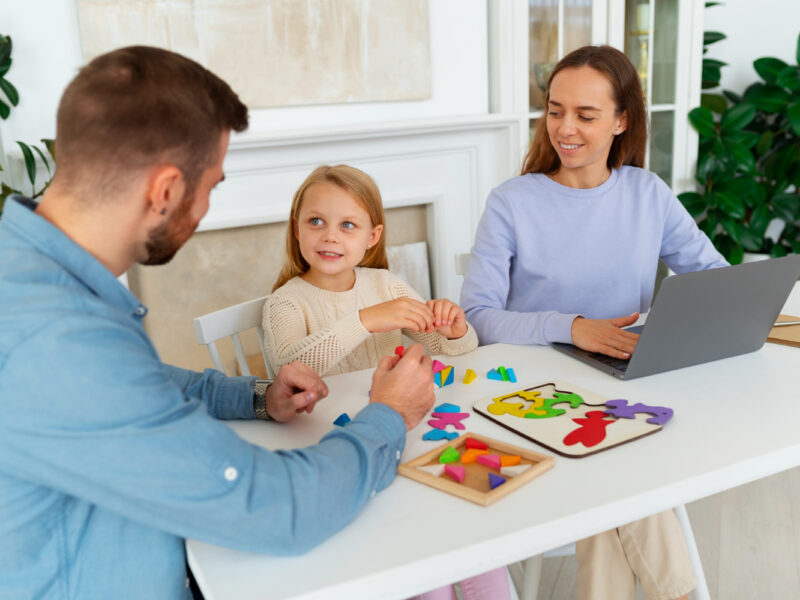Starting ABA therapy is a meaningful step toward supporting your child’s growth—but the first session can also feel unfamiliar. Knowing what to expect can ease any anxiety and help you feel prepared, confident, and informed as the process begins.
1. Getting to Know Your Child
The first ABA session is all about building trust and connection. The Behavior Therapist will spend time observing your child, learning their preferences, communication style, and how they respond to different situations. It’s less about structured teaching and more about developing rapport in a comfortable, low-pressure way.
2. Reviewing Goals and the Treatment Plan
Before the session, a Board Certified Behavior Analyst (BCBA) will have created a customized treatment plan based on an initial assessment. The therapist will begin introducing small parts of this plan—focusing on foundational skills such as eye contact, following simple instructions, or requesting preferred items.
3. Play-Based Learning and Positive Reinforcement
Much of the first session will involve play-based activities that are both fun and purposeful. The therapist will likely use toys, games, or favorite objects to engage your child while embedding early learning opportunities. Positive reinforcement—like praise, tokens, or small rewards—is used to encourage cooperation and participation.
4. Parent Involvement and Observation
Parents may be asked to observe or even participate in parts of the session. This helps you understand the techniques being used and prepares you to reinforce them at home. The therapist may also ask questions or seek your insights to better tailor the approach.
5. Tracking and Notes
While engaging with your child, the therapist will also take notes or collect simple data on responses and behaviors. This helps measure progress over time and ensures the strategies remain effective and individualized.
6. No Pressure for Perfection
The first session is not about perfection—it’s about establishing a foundation for growth. Don’t worry if your child doesn’t follow directions, stays quiet, or even resists the activities. Every child adjusts at their own pace, and the therapist is trained to navigate those early challenges with patience and care.
Your first ABA session is the beginning of a partnership—between your family, your child, and a team committed to helping them thrive. With time, consistency, and compassion, meaningful progress follows.



